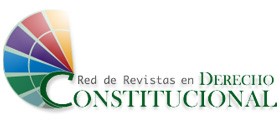Los procedimientos fronterizos de protección internacional en Ceuta y Melilla: un balance Crítico. (RI §423023)

The border posts of international protection in Ceuta and Melilla: a critical balance -
Jorge Agustín Viguri Cordero
En los últimos años, la deficitaria gestión de los flujos migratorios y de refugiados en los puestos fronterizos de Ceuta y Melilla ha obstaculizado el acceso efectivo a la solicitud de protección internacional –asilo y protección subsidiaria–, motivando que los nacionales de terceros países prioricen la llegada a nuestras fronteras de forma irregular.
El presente trabajo tiene por objeto examinar el derecho a la protección internacional en el procedimiento fronterizo de Ceuta y Melilla, las expulsiones colectivas de migrantes a la luz de los últimos pronunciamientos del TEDH (N.D. y N.T. c. España y Asady y otros c. Eslovaquia) y sus condiciones de acogida más deficitarias, concretamente, las persistentes restricciones a la libertad de circulación de los solicitantes de protección internacional y la situación actual que experimentan los Centros de Estancia Temporal de Inmigrantes (CETI) y los Centros de Internamiento de Extranjeros (CIE). Esta investigación confirma la apremiante necesidad en la aprobación de la tercera fase del Sistema Europeo Común de Asilo (SECA) y de la reforma del sistema nacional de asilo, concretamente, la reformulación del régimen jurídico de las “devoluciones en caliente” y los derechos de residencia y acogida dispuestos en las ciudades autónomas de Ceuta y Melilla.
I. INTRODUCCIÓN. II. LUCES Y SOMBRAS DEL PROCEDIMIENTO FRONTERIZO DE CEUTA Y MELILLA Y SU IMPACTO EN EL DERECHO A LA PROTECCIÓN INTERNACIONAL. 1. Estado actual de la cuestión. 2. Régimen jurídico de las “devoluciones en caliente” y su conflicto con el derecho a la protección internacional. III. LA LIBERTAD DE CIRCULACIÓN DE LOS SOLICITANTES DE PROTECCIÓN INTERNACIONAL DESDE CEUTA Y MELILLA. IV. LA SITUACIÓN DE LOS CENTROS DE ESTANCIA TEMPORAL DE INMIGRANTES Y DE LOS CENTROS DE INTERNAMIENTO DE EXTRANJEROS EN CEUTA Y MELILLA. V. CONCLUSIONES.
In recent years, the deficient management of migratory and refugee flows at the border posts of Ceuta and Melilla has hampered effective access to the application for international protection –asylum and subsidiary protection–, causing that third-country nationals prioritise the irregular arrival at the Spanish borders. The purpose of this study is to examine the right to international protection in the border procedure of Ceuta and Melilla, the collective expulsions of migrants in the light of the latest pronouncements of the ECHR (N.D. and N.T v. Spain and Asady and others v. Slovakia) and their most deficient reception conditions, specifically, the persistent restrictions on the freedom of movement of applicants for international protection and the current situation experienced by the Centre for Temporary Stay of Immigrants (CETI) and the Alien Internment Centres (CIE). This research confirms the urgent need for the approval of the third phase of the Common European Asylum System (CEAS) and the reform of the national asylum system, specifically, the reformulation of the legal system of the "hot returns" and the rights of residence and reception that take place in the autonomous cities of Ceuta and Melilla.

 CONSEJO EDITORIAL / EDITORIAL BOARD
CONSEJO EDITORIAL / EDITORIAL BOARD